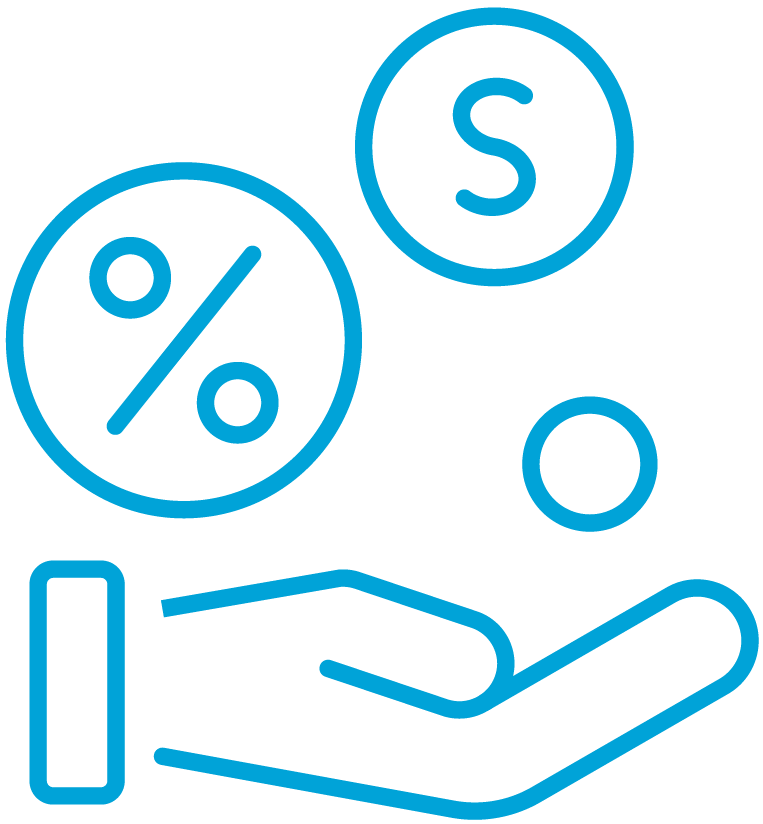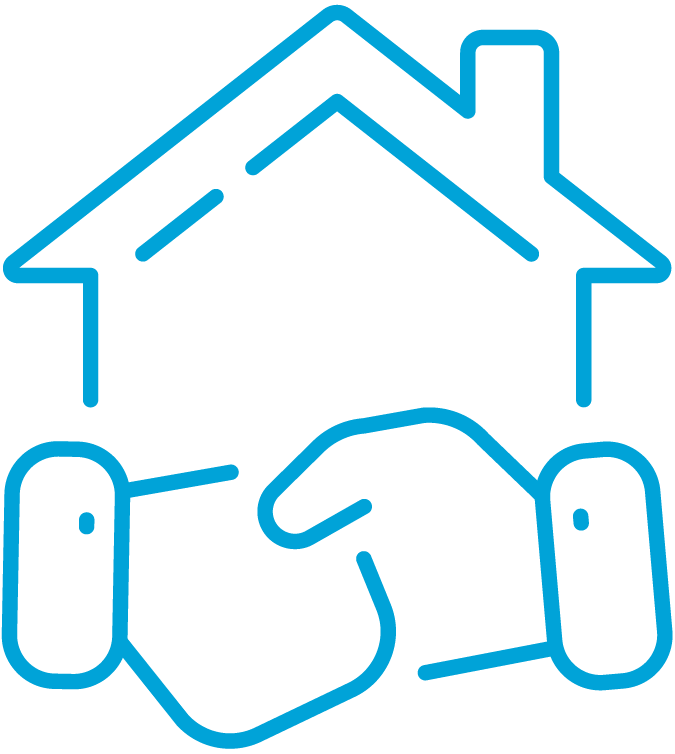
PURCHASE WITH PURPOSE
Whether you want to buy your family’s first residence or grow your portfolio, we’re committed to moving your future forward.

No more worrying about landlords or rent increases, and you’ll be able to live in your home for as long as you like. Never be surprised by rent increases again.

Homes are important stepping stones, whether as temporary housing that can recoup its “rent” upon sale, or as your next step on the path to prosperity. Homes can increase in value, so every payment is an investment.

Many things become possible once you own a home, and taking control of your housing opens doors. Talk to one of our loan originators about the possibility of home ownership and the possibilities that come with it!

Everyone should own a home. State and federal agencies often give more assistance to homebuyers than to renters. Many diverse programs exist to make homeowning easier and more affordable than ever before.
Explore each step to learn more.
Log in and apply online or call one of our Mortgage Loan Originators to determine what you qualify for and learn about the types of loans available. Your Mortgage Loan Originator will pull your credit report and review your documents such as taxes, W-2s and paystubs, and provide you with a pre-qualification letter so you can start home shopping. Knowing what monthly payment you are comfortable with is crucial to a successful home shopping experience.
Your Residential Mortgage professional can recommend you to Realtors in your area. Not only will they assist you in your search but they’ll be able to provide advice and support throughout the process.
Work with your Realtor to submit an offer. They will prepare the sales contract, present it to the seller’s agent and work to negotiate the offer, if needed. You will provide the earnest money – a deposit you make to the seller to show you are serious about buying the home.
Buyers may request a home inspection before closing and this is typically a condition written into the sales contract. This allows you to uncover any potential issues with the home that may not be visible when you visited the property. You will be responsible for paying for your home inspection. Your Realtor can help negotiate repairs, if necessary.
A Loan Processor will organize the paperwork, make sure the documentation is complete and prepare your file for underwriting. They will verify employment, income, assets and debts and examine payment histories. They will collect funds for and order an appraisal on the property by a licensed real estate appraiser. You will also need to shop for and provide proof of homeowner’s insurance to your Mortgage Loan Originator.
An underwriter will review all documents provided. Additional documents may be necessary to obtain final approval. Documents will then go to the closing department.
The closing department will work with the Title Company to prepare loan documents for closing. The Title Company will schedule a date and time for you to review and sign your documents. In addition, they will confirm the amount you will need to bring to closing. At least three days prior to closing, you will be provided with a Closing Disclosure. This will help you compare actual charges to the estimated charges reflected on the Loan Estimate you received during Processing.
This is the moment you’ve been eagerly anticipating. Once both you and the seller have inked all the necessary documents, the lender will fund your transaction, and the Title Company will initiate the process of transferring the property’s title into your name. Once this comprehensive process concludes, the keys to your new home will be handed over to you. Congratulations are certainly in order!
There are several factors that determine the loan amount and purchase price that you can afford. For qualification purposes, lenders look at income, debt, assets (how much money you have for the down payment, closing fees, points, and other funds necessary to close your loan), as well as credit profile. There are many different loan programs that offer different terms and rates, and some require lower down payments than others and offer more flexibility in credit and income. The best thing to do is get pre-qualified so that you know what loan programs you qualify for, the price range you can afford, and what your monthly payments will be. We will provide a pre-qualification at no cost.
With our wide variety of low and no down payment options, you can buy a home for very little down payment – if any. We offer VA, FHA, USDA, HUD 184, Bond Loans, and Conventional loan options that require less than the typical 5% down payment. You’ll still need to consider closing costs, prepaid taxes, insurance, and reserves when calculating your needed funds. With some loan programs, the seller can pay any or all of these if negotiated as such – it’s possible to get into a home with no funds at closing in some cases. Call one of our experienced Mortgage Loan Originators to see which option is best for you!
Although a home inspection is not required, it is highly recommended you hire the services of a professional qualified inspector to help you determine the condition of the home you are looking to purchase. A professional inspector will look for any structural issues as well as mechanical problems that may exist in the home that could cause problems in the future. In addition to a structural review, an inspector will also check faucets, toilets, appliances, and other items in the home to make sure everything is in working order. If something needs to be addressed, your agent can help you negotiate corrections / repairs.
A home inspection is a review of the property by a home inspector, who looks at the property from a health and safety, maintenance, and structural perspective and recommends changes/corrections to bring the property up to a higher standard.
A home appraisal is a value assessment done by a professional appraiser. The appraiser looks at the property and sales price, compares it to other recent sales in the area, and computes an indicated value. The appraiser may also note deficiencies in the property with or without the help of a home inspection.
Standard documentation collected for a purchase transaction includes information regarding your income such as paystubs covering the most recent 30 days and W-2s for the last two years, tax returns, asset information such as bank or mutual fund stock statements covering the last 60 days showing source of funds for your down payment, closing fees, points, pre-paid items, and other funds needed to close your loan.
A typical period is 30 to 60 days. The period defined on the purchase contract and agreed upon by both buyer and seller is usually what dictates when your loan closes.
Typically, you will sign your loan documents at a designated settlement office such as a Title Company or Escrow Company office. You will review and sign all your loan documents and then present a certified or cashier’s check to pay the remaining down payment, closing fees and other applicable closing funds. Once the loan documents are signed, the file will go to recording and the next business day you will be the proud owner of your new home. Don’t forget to change the locks!